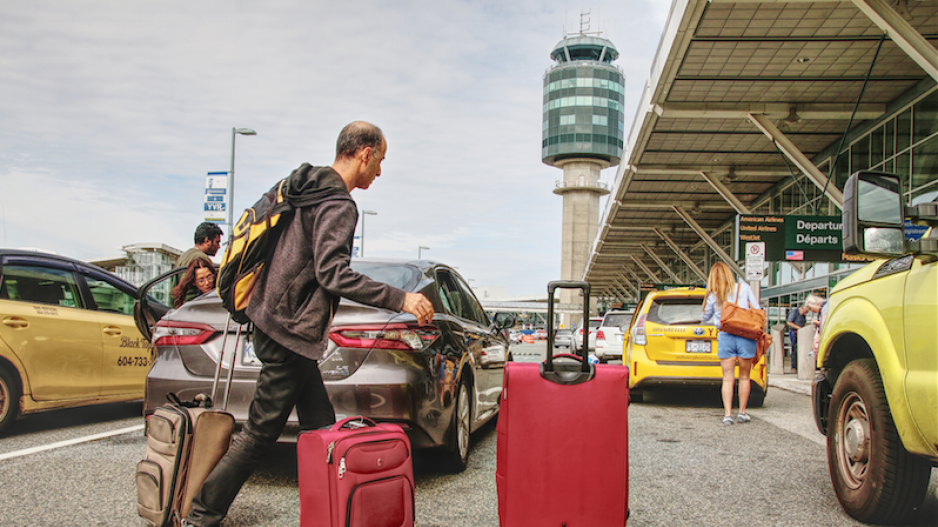“We are a fossil-fuel-driven industry at our core,” Tamara Vrooman, CEO of the Vancouver Airport Authority, acknowledged Monday while speaking at the Cascadia Innovation Corridor (CIC) conference in Blaine, Wash.
“The price of carbon-emitting fuels is going to go up, so if we want to make our airport competitive from both a cargo, and a tourism, and passenger and business development point of view, we need to decarbonize and future-proof, and we're very committed to doing that for business reasons.”
With wildfire smoke still hanging in the sky, Vrooman and counterparts in Seattle and Portland signed a statement earlier in the day at the CIC conference supporting four shared goals aimed at reducing carbon via four areas:
- Sustainable aviation fuels
- Airport facilities
- Airfield operations, and
- Vehicle trips to and from airports by employees and travellers
Port of Seattle executive Steve Metruck, whose organization oversees the Seattle-Tacoma International Airport, said during the conference that some might consider YVR, Sea-Tac and Portland International Airport to be competitors.
“But there's certain things we don't compete on,” he said, referring to sustainability efforts.
Vrooman said the signed statement would allow the three big airports to share data as well as their own experiences reducing carbon coming from their facilities.
She pointed to the recent creation of a digital twin for YVR – a digitized model of the airport that has been opened up for use among regional and national partners – as one initiative already underway that’s helping it better control its energy usage.
Vrooman also said regional commitments to expensive sustainable aviation fuels would help the three large airports enter into long-term contracts and reduce the prices for those fuels in the coming years.
“Some of our carriers currently do use sustainable aviation fuel, frankly, largely for marketing purposes at this at this point, but it is something that's available,” she said.
“In Vancouver in order to get sustainable aviation fuel, it comes by diesel-fuelled marine tankers from Singapore, so that doesn't make a lot of sense.”
She said Cascadia already has regional infrastructure in place for conventional aviation fuel, but the combined scale of the three airports will make it more practical to obtain sustainable aviation fuels.
The CIC conference comes after Washington state legislators earmarked US$150 million for ramping up the development of a high-speed rail line linking Vancouver, Seattle and Portland back in March.
“We have to recognize the fact that a project of this magnitude will not happen without public-private partnerships. Either side solely shouldering the responsibility will fail,” Mark L. Riker, executive secretary of the Washington State Building and Construction Trades Council, said during a separate panel at the conference.
A report commissioned by the CIC is urging stakeholders throughout the region to support the high-speed rail initiative.
“As we are already doing with ultra-high-speed ground transportation, we must lay the groundwork today, securing funding and conducting feasibility studies, to bring transformative infrastructure to our mega-region,” the report states.
The CIC is also calling for public-private partnerships for initiatives such as:
- Accelerating the adoption and rollout of medium to heavy-duty electric vehicles (EV)
- Standardizing and expanding light-duty EV charging infrastructure
- Convening stakeholders to further develop a green hydrogen economy
Microsoft Corp. (Nasdaq:MSFT) co-founder Bill Gates appeared at the CIC conference earlier in the day and at one point name-checked Squamish-based Carbon Engineering Ltd., of which he’s an investor, for its efforts at developing direct air capture technology that pulls carbon from the atmosphere to help reduce emissions.
The conference continues Tuesday.




